Team:Oxford/biosensor
From 2014.igem.org
(Difference between revisions)
| (31 intermediate revisions not shown) | |||
| Line 34: | Line 34: | ||
</div> | </div> | ||
<div style="background-color:white; border-bottom-left-radius:10px;border-radius:10px; padding-left:10px;padding-right:10px;min-width:300px;margin-top:-50px;"> | <div style="background-color:white; border-bottom-left-radius:10px;border-radius:10px; padding-left:10px;padding-right:10px;min-width:300px;margin-top:-50px;"> | ||
| - | <a href=" | + | <a href="https://static.igem.org/mediawiki/2014/3/3d/OxigemLAB_BOOK.pdf" target="_blank"><img src="https://static.igem.org/mediawiki/2014/5/50/OxigemLabbook.png" style="position:absolute;width:6%;margin-left:84%;margin-top:-13%;z-index:10;"></a> |
<a href="https://static.igem.org/mediawiki/2014/1/16/Oxigem_LAB_PROTOCOLS.pdf" target="_blank"><img src="https://static.igem.org/mediawiki/2014/a/a4/OxigemProtocols.png" style="position:absolute;width:6%;margin-left:91%;margin-top:-13%;z-index:10;"></a> | <a href="https://static.igem.org/mediawiki/2014/1/16/Oxigem_LAB_PROTOCOLS.pdf" target="_blank"><img src="https://static.igem.org/mediawiki/2014/a/a4/OxigemProtocols.png" style="position:absolute;width:6%;margin-left:91%;margin-top:-13%;z-index:10;"></a> | ||
| Line 52: | Line 52: | ||
| - | <a href="https://2014.igem.org/Team:Oxford/biosensor_realisation">electronic circuit</a> | + | <a href="https://2014.igem.org/Team:Oxford/biosensor_realisation#show1">electronic circuit</a> |
signals when there is very little to no DCM left in our DCMation kit. | signals when there is very little to no DCM left in our DCMation kit. | ||
| Line 69: | Line 69: | ||
Biological systems are very good at sensing the huge range of chemical and physical inputs in the world around them, often at very low levels. They need to do this in order to respond to and survive the constant changes in their environment. In many cases, this sensing results in a change at the transcriptional level in the organism. For example, Methylobacterium extorquens DM4 increases expression of DCM dehalogenase in the presence of DCM in order to exploit this carbon source. This means we can use these natural sensing systems to engineer novel genetic circuits that will respond to specific inputs with detectable outputs; in other words, to create a biosensor. <br><br> | Biological systems are very good at sensing the huge range of chemical and physical inputs in the world around them, often at very low levels. They need to do this in order to respond to and survive the constant changes in their environment. In many cases, this sensing results in a change at the transcriptional level in the organism. For example, Methylobacterium extorquens DM4 increases expression of DCM dehalogenase in the presence of DCM in order to exploit this carbon source. This means we can use these natural sensing systems to engineer novel genetic circuits that will respond to specific inputs with detectable outputs; in other words, to create a biosensor. <br><br> | ||
| - | <h1> | + | <img src="https://static.igem.org/mediawiki/2014/6/68/Oxford_Biosensor_homepage_realisation.png" style="float:right;position:relative;width:250px;margin-bottom:10px;"/> |
| + | <h1>Optimising our Design</h1> | ||
| + | |||
| + | |||
| + | |||
| + | The ideal performance criteria we want in our biosensor are:<br><br> | ||
| + | - A fast response to DCM.<br> | ||
| + | - High amplitude of output signal.<br> | ||
| + | - A robust system can cope with slight perturbations and still retain original behaviour.<br> | ||
| + | - High sensitivity to input.<br><br> | ||
| + | |||
| + | |||
| + | <br><br> | ||
| + | However, it is not possible to fulfil all these criteria in one system. The parameters we can alter biologically are limited; furthermore altering one parameter in the system impacts multiple criteria. Working with these restrictions, the challenge was to design a biosensor with properties as close to ideal as possible without sacrificing any one criterion entirely.<br> | ||
| + | We therefore modelled the effect of changing our controllable parameters (see design optimisation page) and used this to guide our initial design decisions.<br><br> | ||
| + | |||
| + | <h1>Characterisation, Construction and Realisation</h1> | ||
| + | |||
The promoter of dcmA (DCM dehalogenase gene) is placed upstream of sfGFP; therefore we will get a fluorescent output instead of dcmA expression as in the native bacterium. Repression or activation of the dcmA promoter relies on the regulatory protein DcmR which responds to the [DCM]; in our genetic circuit, the dcmR gene is constitutively expressed.<br><br> | The promoter of dcmA (DCM dehalogenase gene) is placed upstream of sfGFP; therefore we will get a fluorescent output instead of dcmA expression as in the native bacterium. Repression or activation of the dcmA promoter relies on the regulatory protein DcmR which responds to the [DCM]; in our genetic circuit, the dcmR gene is constitutively expressed.<br><br> | ||
| Line 82: | Line 99: | ||
</div> | </div> | ||
| + | <div style="border-bottom-left-radius:10px;border-radius:10px; padding-left:10px;padding-right:10px;min-width:300px;margin-top:15px;"> | ||
| + | <br><h1>References</h1> | ||
| + | [1] Shaun Rowson BA (Hons) MSc CIWEM CWEM (Team Leader - Groundwater & Contaminated Land,Lincolnshire and Northamptonshire) | ||
| + | <br><br> | ||
| + | </div> | ||
Latest revision as of 02:22, 18 October 2014
 "
"




 See below for links to the wet lab work, modelling and physical realisation of our product!
See below for links to the wet lab work, modelling and physical realisation of our product!





























































